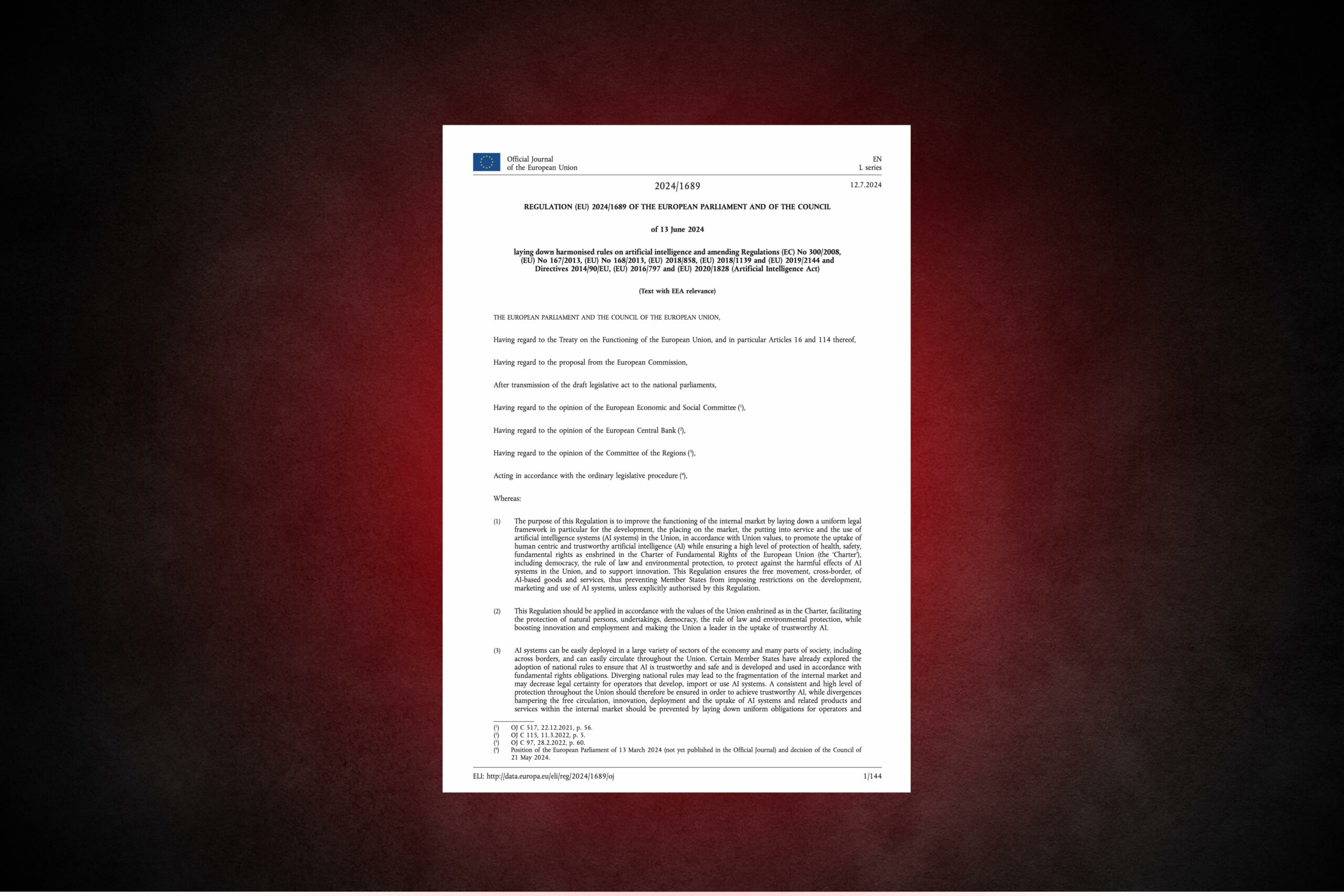Click here to order “Blockchain + Antitrust”
***
You’ll find below the academic papers and press articles that I enjoyed reading in October 2020. You can follow me on Twitter (@LeConcurrential) or LinkedIn (here) if you want to find out about similar articles on a more regular basis.
SUBSCRIBE TO THE NETWORK LAW REVIEW NEWSLETTER (100% free) SUBSCRIBE TO THE STANFORD COMPUTATIONAL ANTITRUST NEWSLETTER (100% free)
Antitrust:
- How Venture Capital’s “Exit Strategy” Drives Tech Industry Concentration (Lemley & McCreary – Concurrentialiste)
- Competition Stories: September & October 2020 (Makis Komninos – Concurrentialiste)
- Newsletters for antitrust law enthusiasts (Thibault Schrepel – Concurrentialiste)
- LaTeX Antitrust (Thibault Schrepel – Chillin’Competition)
- Anti-monopoly vs. Antitrust (Ben Thompson – Stratechery)
- The Revolution in Antitrust: An Assessment (Carlton & Heyer – SSRN)
- Antitrust and Platform Monopoly (Herb Hovenkamp – SSRN)
- Structural Separation and Self-Preferencing: What are the Right Lessons of History? (Randy Picker – Pro Market)
- It’s All About What We Don’t Know (Doug Melamed – TOTM)
- Abuse of Dominance in Digital Markets (OECD)
- Presentation of the Sherman Award to the Honorable Judge Douglas H. Ginsburg (DOJ)
- How do you solve a problem like Maria (or, say, Big Tech)? (Pinar Akman – Chillin’Competition)
- Google Case Shows Antitrust Gone Wild (Bloomberg Editorial Board)
- Presentation of the Sherman Award to the Honorable Judge Douglas H. Ginsburg (DOJ)
- Rent-Seeking and Public Choice in Digital Markets” (Thom Lambert – GAI)
- Collusion as Environmental Protection – An economic assessment (Cento Veljanovski – SSRN)
- Why Gazprom’s $7.6 Billion Polish Fine Is Just the Start (Stephanie Bodoni & Maciej Martewicz – Bloomberg)
Blockchain & artificial intelligence:
- The Impact of Artificial Intelligence on the Law (Calum Chace – Forbes)
- PayPal to Launch Crypto Buying and Selling Features (Liam Frost – Decrypt)
- National Strategy for Critical and Emerging Technologies (White House)
- Cryptocurrency: Enforcement Freamework (U.S. Dpt. of Justice)
- Alibaba Founder Jack Ma: “Digital Currencies” Are the Future (Mathew Di Salvo – Decrypt)
- Cracking the code (OECD)
- Artificial general intelligence: Are we close, and does it even make sense to try? (Will Douglas Heaven – MIT Tech Review)
- How Will Bitcoin Lead to More Freedom? (Jim Epstein – Reason)
- A radical new technique lets AI learn with practically no data (Karen Hao – MIT Tech Review)
- Report on a framework of ethical aspects of artificial intelligence, robotics and related technologies (European Parliament)
Big Tech:
- Congress made a lousy case for breaking up Big Tech (Alec Stapp – MIT Tech Review)
- Europe should embrace digital change, not strangle it (Nicolas Petit – Financial Times)
- The association between adolescent well-being and digital technology use (Orben & Przybylski – Nature)
- It’s Not So Simple Who Owns “Your” Data (Peter Klein – TOTM)
- What New Tech Will We Fear Next? (Pessimists Archive)
- Thank You Google for Subsidizing my iPhone (Brian Albrecht – Economic Forces)
- The Smallness of the Bigness Problem (Ramsi Woodcock – What Am I Missing?)
- Big Tech’s Professional Opponents Strike at Google (Adam Satariano & David McCabe – NYTimes)
- Suing Google Won’t Help Consumers (George L. Priest – WSJ)
- US bid to break up Big Tech is ‘far-fetched’ and ‘unlikely to go anywhere’ (Michael Cogley – The Telegraph)
- Facebook Seeks Shutdown of NYU Research Project Into Political Ad Targeting (Jeff Horwitz – WSJ)
- Who owns the web’s data? (The Economist)
- Should big tech save newspapers? (The Economist)
- Breaking Up Facebook Won’t Fix Social Media (Sinan Aral – HBR)
- Visualized: A Snapshot of the Global Personal Tech Market (Carmen Ang – Visual Capitalist)
- Killer acquisition or successful integration: The case of the Facebook/Instagram merger (Ben Sperry – The Hill)
- Tiktok and Seeing Like an Algorithm (Eugene Wei and Sonal Chokshi – A16z)
- Visualized: A Breakdown of Amazon’s Revenue Model (Carmen Ang – Visual Capitalist)
- Digital platforms aren’t utilities — treating them like they are won’t help (Sam Bowman – The Hill)
- Congress Agrees: Big Tech Is Broken (Shira Ovide – NYTimes)
Econ:
- The Pocket Guide To Understanding The Different Schools Of Economics (Tyler Durden – ZeroHedge)
- Hayekian Behavioral Economics (Cass R. Sunstein – SSRN)
- Paul Milgrom, Nobel Laureate (Tyler Cowen – Marginal Revolution)
- Robert B. Wilson, Nobel Laureate (Tyler Cowen – Marginal Revolution)
- Increasing market concentration in Europe is (likely) a strength (Bighelli, di Mauro, Melitz & Mertens – Vox)
- Incumbents, Not Startups, Are Regulatory Arbitrageurs (Byrne Hobart – The Diff)
- How Satya Nadella turned Microsoft around (The Economist)
- Measuring the Effects of Firm Uncertainty on Economic Activity (Handley & Li – NBER)
- Robert E. Lucas (Econlib)
- Shareholders Don’t Always Want to Maximize Shareholder Value (Oliver Hart – Pro Market)
Other:
- Robert Wilson knocking on Paul Milgrom’s door (Stanford University)
- Do I Deserve What I Have? Part III (Russ Roberts – Medium)
- Unrules (Coglianese, Scheffler & Walters – SSRN)
I also read (and enjoyed) these books:
- Edited by Peter Ludlow, Crypto Anarchy, Cyberstates, and Pirate Utopias (MIT Press 2001)
- Aghion, Antonin & Bunel, Le pouvoir de la destruction créatrice (Odile Jacob 2020)
- Godefroy de Moncuit, La faute lucrative en droit de la concurrence (Concurrence 2020). A few words about it:
(EN) Competition law infringements are generally scrutinized from a technical perspective, without mentioning the reasons leading to their implementation. In this one of a kind analysis, Godefroy de Moncuit introduces a general theory of incentives to infringe competition law. On the basis of Justice Holmes “bad man” theory, he studies the extent to which economic actors may have an interest in infringing the law – knowing that the detection risk is low, and that type 2 errors are common. He also explains that sanctions are rarely dissuasive as they do not repair all the damage (gain), and even more so when strategies to limit the fine are being implemented (such as leniency applications).
Showing that the rational agent theory remains the most relevant model for analyzing these offenses, Godefroy de Moncuit proposes a series of measures to remedy them. Let me discuss a few. First, he suggests reforming the methodology for calculating penalties so that the basic amount better reflects the damage to the economy (and, in the end, to consumers). Then, the author urges competition agencies to clarify their position on crisis cartels – and, in particular, to disregard economic crises as a factor for reducing the fines. In addition, he proposes the introduction of confiscatory penalties and sanctions directed at companies’ executives. He introduces a “legitimacy test” to evaluate the merits of imprisoning the latter.
These measures are bound to spark lively debates which will be informed by the book’s legal, economic, and managerial perspectives. Written in French, it deals mainly with European law, but its teachings will interest a broader readership as the mechanisms he discusses apply throughout the world. The question is: when will there be an English translation of this classic in the making?
(FR) On analyse généralement les infractions au droit de la concurrence sous un angle technique, sans évoquer les raisons ayant conduit à leurs mises en oeuvre. Dans cet ouvrage unique, Godefroy de Moncuit présente pour la première fois une théorie générale des incitations à enfreindre les règles de droit de la concurrence. Pour cela, il fait la part belle à la théorie du “bad man” telle que développée par Justice Holmes au début du 20ème siècle, et analyse dans quelle mesure l’acteur économique peut avoir intérêt à enfreindre ce droit – sachant que le risque de détection est faible et que les erreurs de type 2 sont communes. L’auteur explique également que les sanctions ne sont que rarement dissuasives dans la mesure où elles ne réparent pas tout le préjudice (gain), et ce d’autant plus lorsque différentes stratégies permettant de limiter l’amende sont mises en oeuvre (ex: les demandes de clémence).
Expliquant que la théorie de l’agent rationnel demeure le modèle le plus pertinent pour analyser ces infractions, l’auteur propose une série de mesures afin d’y remédier. En voici quelques-unes. Dans un premier temps, il propose de réformer la méthodologie du calcul des sanctions afin que le montant de base reflète davantage le dommage causé à l’économie (et, de fait, au consommateur). L’auteur enjoint ensuite les autorités à clarifier leur position sur les cartels de crise – et, notamment, à écarter l’argument de la crise économique comme facteur de réduction de l’amende. Par ailleurs, Godefroy de Moncuit propose l’introduction en droit européen d’une sanction confiscatoire, ainsi qu’une sanction des dirigeants d’entreprises. Il introduit à ce titre un “test de légitimité” afin d’évaluer les mérites d’une politique d’emprisonnement de ces derniers.
Ces mesures ne manqueront pas de susciter un débat ; gageons qu’il sera largement éclairé par cet essai. Effectivement, je ne connais aucun autre ouvrage qui couvre du sujet des infractions au droit de la concurrence à travers le prisme des sciences juridiques, économiques, et managériales prises ensemble. Rédigé en langue française, il traite principalement de droit français et européen, mais ses enseignements ne seront pas sans intéresser un lectorat plus large – les mécanismes qu’il présente s’appliquent en effet à travers le monde. Une question se pose ainsi : à quand une traduction en langue anglaise de ce classique en devenir ?
Dr. Thibault Schrepel
(@LeConcurrential)









